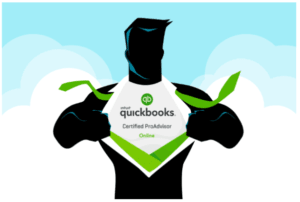Our Location
304 North Cardinal St.
Dorchester Center, MA 02124

To complete one, you’ll need your bank statement, plus financial statements, and you’ll be comparing the two to make sure every entry matches up. So, as soon as a vendor invoices you, you record the invoice as an expense—even if it hasn’t left your account yet. Bookkeeping is bookkeeping for ecommerce the work of recording your transactions and keeping track of your money. If you run an ecommerce business, here’s a rundown of everything you—or your bookkeeper—needs to stay on top of.


One way to report sales tax in your bookkeeping records is to debit the amount you’ve collected from your cash account and credit it to your sales revenue and sales tax payable accounts. It’s important to track sales tax correctly in your chart of accounts, so it’s clear how much of your cash in the bank should be set aside for taxes. Ecommerce bookkeeping differs from traditional bookkeeping by dealing with online sales channels, multiple payment gateways, and often international transactions. Including inventory in your books ensures that your financial statements reflect the real value of your business assets, which is crucial for attracting investors or securing loans. It’s one more item on your to-do list, but consistent tracking and reminders make it easy to manage bookkeeping tasks and avoid unnecessary stress. Bookkeeping is essential for keeping businesses in check since it supports financial transparency, mandatory compliance, and business expansion.

With the right tools and software, many of your bookkeeping tasks can be automated. This saves you hours of time every month and minimises the chance of errors. You need to know how much stock you have at any given time to avoid shortages. Tracking inventory also helps businesses identify best-selling products so they https://www.bookstime.com/articles/how-to-prevent-duplicate-payments know which products to invest more money in. However, if your business is growing and you need help with taxes and other financial issues, an accountant may be beneficial. Let’s look at the top small business accounting software you can use in your ecommerce business.

Consistent review of financial data empowers ecommerce businesses to adapt to changes, improve budgeting, and increase profitability. Monthly bank reconciliation is crucial as it evaluates transactions, ensuring accurate reporting and fraud detection. This process aligns financial records with bank account statements and bank accounts, identifying discrepancies.
Look for software offering scalability, so it can grow with your business. Ensure it provides robust security features to protect sensitive financial data. fixed assets Consider the volume of transactions and integration with your existing e-commerce platforms.